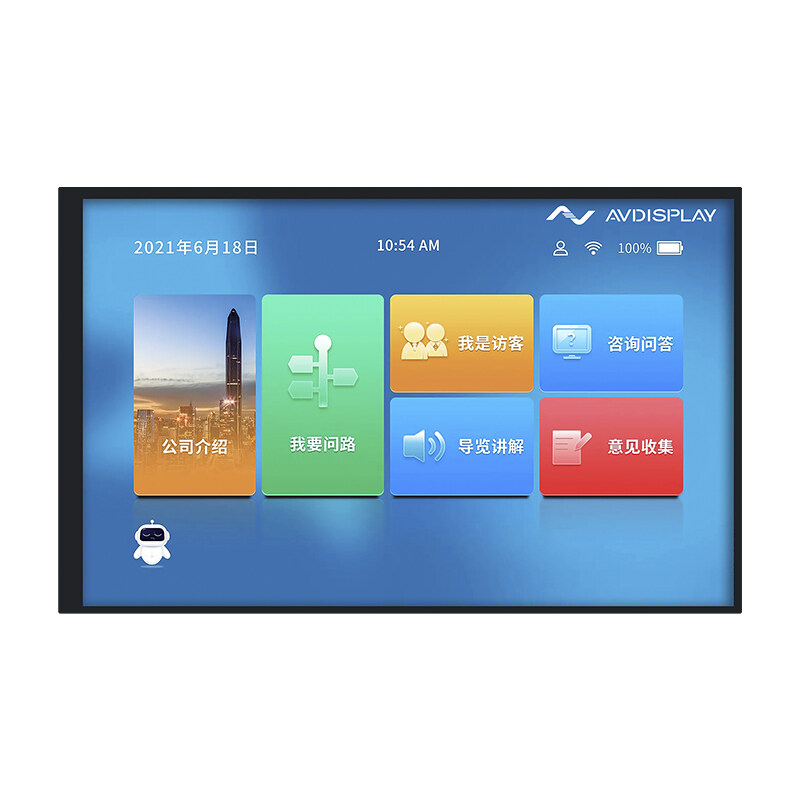Email format error
Email cannot be empty
Email already exists
6-20 characters(letters plus numbers only)
The password is inconsistent
Email format error
Email cannot be empty
Email does not exist
6-20 characters(letters plus numbers only)
The password is inconsistent


There's a subtle revolution that has been unfolding in the world of visual technology, and it's known as the Thin-Film Transistor or TFT displays. From their inception to the present day, these displays have come a long way, transforming the way we interact with electronic devices. In this blog, we'll trace the history and development of TFT displays, exploring advancements in resolution, color accuracy, and energy efficiency.
The story of TFT displays begins in the late 20th century when liquid crystal displays (LCDs) started to gain popularity. The introduction of TFT technology provided a significant boost to the industry in the late 1980s, as it allowed for individual pixels to be controlled by transistors, enhancing image quality and contrast.
Over the years, the resolution of TFT displays has seen remarkable improvements. High-resolution capabilities have been a driving force in the development of TFT displays, enabling them to produce intricate images and videos with stunning clarity and vividness . Innovations such as In-Plane Switching (IPS) technology have further enhanced viewing angles and color accuracy, making TFT displays the preferred choice for various applications, including smartphones, tablets, and digital signage.
The journey of TFT displays has also seen significant strides in color accuracy and realism. With the ability to render high-resolution images and graphics, TFT displays have become ideal for environments where clarity and precision are essential. The development of high-resolution full-color LCDs and the use of advanced materials have dramatically improved the transmittance and color reproduction of these displays.
As the world moves towards more sustainable technologies, TFT displays have also focused on improving energy efficiency. The high power efficiency of TFT-LCDs is due to their use of an energy-efficient backlight unit, an energy-efficient LCD panel, and eco-friendly components. This focus on energy efficiency has led to significant electricity savings, contributing to global sustainability requirements.
TFT displays, or thin-film transistor displays, are widely used in various industries due to their high resolution, color accuracy, and energy efficiency. Some of the key applications of TFT displays in different industries include:
1. Consumer Electronics:
TFT displays are commonly used in smartphones, tablets, laptops, and televisions due to their vibrant colors, high resolution, and fast response times. They provide an immersive viewing experience for users and are essential components in modern electronic devices.
2. Automotive:
TFT displays are used in car infotainment systems, navigation systems, instrument clusters, and rear-seat entertainment systems. They provide drivers and passengers with important information, such as speed, navigation directions, and multimedia content, in a clear and easily readable format.
3. Healthcare:
TFT displays are used in medical devices such as patient monitors, diagnostic equipment, and medical imaging systems. They provide healthcare professionals with accurate and detailed information about a patient's condition, helping them make informed decisions and provide better care.
4. Industrial Automation:
TFT displays are used in industrial control panels, HMI (human-machine interface) systems, and monitoring devices in manufacturing plants and factories. They provide operators with real-time data, control options, and visual feedback to monitor and control industrial processes efficiently.
5. Retail and Advertising:
TFT displays are used in digital signage, interactive kiosks, and point-of-sale systems in retail environments. They help businesses attract customers, display product information, promote sales, and enhance the overall shopping experience.
6. Gaming:
TFT displays are used in gaming consoles, handheld gaming devices, and gaming monitors. They provide gamers with high-quality graphics, fast refresh rates, and smooth gameplay, enhancing the gaming experience and immersion.
7. Aerospace and Defense:
TFT displays are used in cockpit displays, avionics systems, military vehicles, and surveillance equipment in the aerospace and defense industries. They provide pilots, soldiers, and defense personnel with critical information, navigation data, and situational awareness in high-stress environments.
As we look to the future, TFT displays continue to evolve, with ongoing research and development focusing on enhancing visual performance and integrating with emerging technologies like 5G and the Internet of Things (IoT). Innovations in display quality, greater integration with advanced automation, and enhanced connectivity are expected to shape the future of TFT displays in industrial control applications.
The evolution of TFT displays is a testament to the power of innovation and the constant pursuit of excellence in the field of display technology. From their early beginnings to the sophisticated displays we see today, TFT displays have come a long way, enhancing our visual experiences and opening up new possibilities for how we interact with the digital world. As technology continues to advance, the future of TFT displays looks brighter than ever, promising even more immersive and efficient visual solutions.
As a reputable manufacturer of high-quality TFT displays, we are eager to establish a partnership with you. You can trust us to deliver top-notch products at competitive wholesale prices. Let us be your go-to supplier for all your TFT display needs.